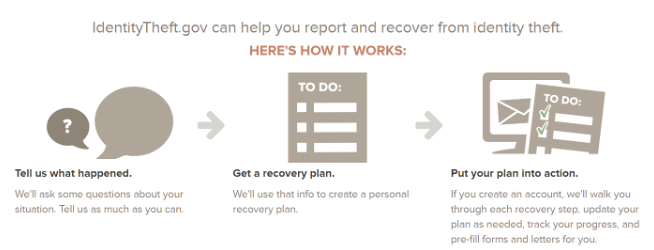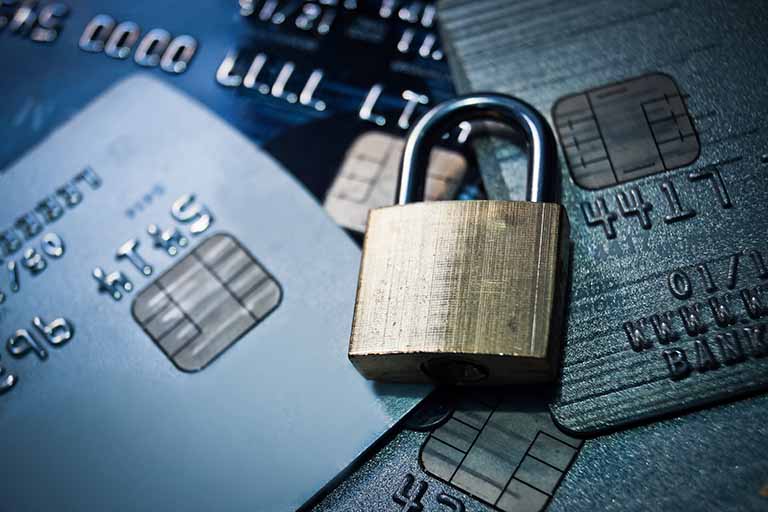“Identity theft has become the third certainty in life, right behind death and taxes.”
– Adam Levin, Author of the book Swiped: What Identity Thieves Do and How to Stop Them, is a longtime advocate and identity fraud expert, former director of the New Jersey Division of Consumer Affairs, Chairman and Founder of CyberScout, and Chairman and Co-founder of Credit.com.
Woligo is all about educating and empowering small business owners to protect their businesses, employees, and families. While we can’t stop someone from stealing your identity (we would if we could!), we can equip you with best practices to help reduce your risk of identity theft.
What is identity theft?
Identity theft is a form of fraud in which an individual’s personal information, such as their name, Social Security number, financial account details, or other identifying data, is stolen and misused for financial gain or other malicious purposes.
Perpetrators of identity theft may use the stolen information to open bank accounts, obtain credit cards, make unauthorized transactions, or engage in other fraudulent activities, often leaving the victim with financial losses and potential damage to their credit history.
How to protect my identity for free
Protecting your identity doesn’t have to cost a dime. Here are twelve best practices to help safeguard your identity for FREE.
- Start using passphrases
Recent guidance from the National Institute of Standards and Technology (NIST) advises that password length is much more important than password complexity. Instead of using short complex passwords, use passphrases that combine multiple words and are longer than 15 characters. For example, “Ch0c0lateCake!sMyFavorite” is much more secure than “Chocolate123!” - Use a password manager
A password manager is a secure tool designed to store, generate, and manage complex passphrases/passwords for all your credentials. - Regularly update passwords
Change your passwords periodically, especially for critical accounts such as email, banking, and social media. This helps prevent unauthorized access. - Enable Two-Factor Authentication (2FA)
Whenever possible, enable 2FA for your online accounts. This adds an extra layer of security by requiring a second form of verification in addition to your password. - Beware of phishing attempts
Be cautious of emails, messages, or websites that request personal information. Verify the legitimacy of requests before providing any sensitive details. - Monitor financial statements
Regularly review your bank and credit card statements for any unauthorized transactions. Report any discrepancies to your financial institution immediately. - Secure your devices
Use strong passwords or biometric authentication on your devices. Install security software, keep your operating system and applications updated, and use firewalls to protect against malware. - Be mindful on social media
Avoid sharing sensitive details and limit the personal information you share on social media platforms. Adjust privacy settings to control who can see your posts and profile details, and be cautious about accepting friend requests or connections from unfamiliar individuals, as cybercriminals often use fake profiles. - Shred personal documents
Dispose of sensitive documents (such as bank statements, bills, and medical records) by shredding them before discarding them to prevent dumpster diving. If you don’t own a shredder, try looking for ‘Community Shredding Events’ in your area. Many organizations and local governments sponsor events like this throughout the year! - Protect your Social Security Number (SSN)
Only provide your Social Security Number when absolutely necessary. Never give out your SSN in unsolicited calls or emails, and ask why and how it will be used before sharing it. - Monitor your credit
Regularly check your credit reports for any suspicious activity. Consider using credit monitoring services to receive alerts about potential identity theft. - Use an ad blocker
Online advertisements often track user behavior and collect data for targeted advertising purposes. By blocking ads, users can reduce their exposure to malicious advertisements and better protect their personal information.
What to do if you are a victim of identity theft
Despite one’s best efforts to prevent identity theft, it’s important to recognize that no system is entirely foolproof, and incidents can still occur. If you find yourself the victim of identity theft, take immediate action to report the crime, dispute any fraudulent activity, and protect your identity moving forward.
How to report identity theft
Reporting identity theft is a multi-pronged approach that helps mitigate immediate damage, prevent future victimizations, and activate essential consumer protections.
- File a police report
Filing a police report helps establish your case legally and provides an official record of the crime, which can be important for pursuing legal remedies and protections. Law enforcement agencies may also be able to use the information in your report to investigate and potentially lead to the identification and apprehension of the perpetrator. - File a complaint with the Federal Trade Commission (FTC)
You can file a complaint with the FTC through their website (identitytheft.gov) or by calling their toll-free hotline at 1-877-438-4338. The FTC provides access to resources and assistance tailored to your situation and can guide you through the recovery process with a personalized plan.
- File a complaint with the Federal Bureau of Investigations (FBI)
Filing a complaint with the FBI can help bring criminals to justice and make the internet a safer place for all. To file a complaint, visit the FBI’s Internet Crime Complaint Center (IC3) at www.ic3.gov - Notify one of the credit bureaus
Contact one of the major credit bureaus (Equifax, Experian, or TransUnion) to place a fraud alert on your credit reports. This alert notifies creditors to verify your identity before extending credit. The bureau you contact will notify the other two. - Contact your financial institutions
Reporting identity theft to your banks, credit card companies, and other financial institutions helps them take appropriate measures to secure your accounts. This may involve closing compromised accounts, disputing fraudulent activity, issuing new cards, and implementing additional security measures.
Secure online accounts
Changing passwords across all accounts is a fundamental step, ensuring that new passwords are strong, unique, and not easily guessable. And if you aren’t already doing so, you should start using two-factor authentication for added security wherever it is available.
Consider a credit freeze
Consider placing a credit freeze on your credit reports. This proactive step restricts unauthorized access to your credit information and prevents identity thieves from opening new accounts in your name without your explicit consent.
Stay vigilant
Identity theft is an ongoing threat, and perpetrators may attempt to exploit stolen information over time. You can stay vigilant by regularly monitoring financial statements, credit reports, and online accounts. Additionally, staying informed about evolving identity theft tactics, practicing safe online habits, and being cautious about sharing personal information contribute to a proactive defense against future threats.
Identity Theft Awareness Week
Identity Theft Awareness Week is an annual week-long event where the Federal Trade Commission and its partners host free podcasts, webinars, Facebook Live interviews, and other events to help educate the public on how to spot, avoid, and recover from identity theft scams.
While Identity Theft Awareness Week only happens once a year, you should take action to protect your identity every day.
Protect your identity
Preventing identity theft, actively monitoring one’s personal information, and preparing for the possibility of becoming a victim are essential practices in safeguarding your identity and financial well-being.
Remember that identity theft recovery can be a process that requires patience and persistence. Keep thorough records, follow up on all actions taken, and seek professional advice if needed.

